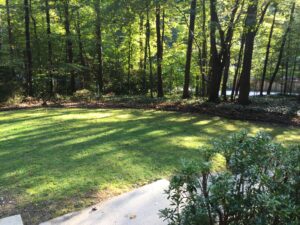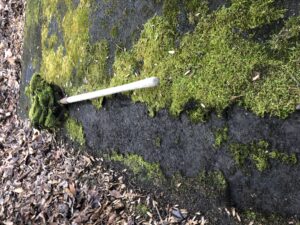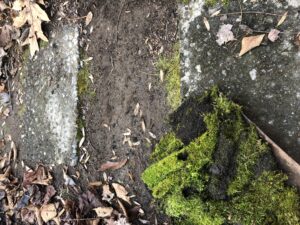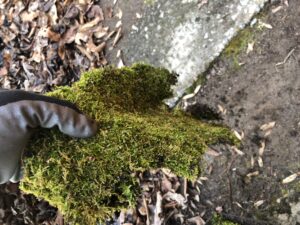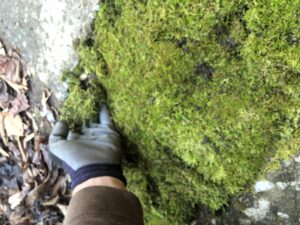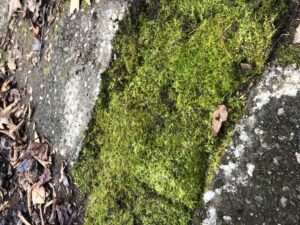Moss Gardening
go.ncsu.edu/readext?906242
en Español / em Português
El inglés es el idioma de control de esta página. En la medida en que haya algún conflicto entre la traducción al inglés y la traducción, el inglés prevalece.
Al hacer clic en el enlace de traducción se activa un servicio de traducción gratuito para convertir la página al español. Al igual que con cualquier traducción por Internet, la conversión no es sensible al contexto y puede que no traduzca el texto en su significado original. NC State Extension no garantiza la exactitud del texto traducido. Por favor, tenga en cuenta que algunas aplicaciones y/o servicios pueden no funcionar como se espera cuando se traducen.
Português
Inglês é o idioma de controle desta página. Na medida que haja algum conflito entre o texto original em Inglês e a tradução, o Inglês prevalece.
Ao clicar no link de tradução, um serviço gratuito de tradução será ativado para converter a página para o Português. Como em qualquer tradução pela internet, a conversão não é sensivel ao contexto e pode não ocorrer a tradução para o significado orginal. O serviço de Extensão da Carolina do Norte (NC State Extension) não garante a exatidão do texto traduzido. Por favor, observe que algumas funções ou serviços podem não funcionar como esperado após a tradução.
English
English is the controlling language of this page. To the extent there is any conflict between the English text and the translation, English controls.
Clicking on the translation link activates a free translation service to convert the page to Spanish. As with any Internet translation, the conversion is not context-sensitive and may not translate the text to its original meaning. NC State Extension does not guarantee the accuracy of the translated text. Please note that some applications and/or services may not function as expected when translated.
Collapse ▲If you live in western North Carolina and your home is surrounded by trees then you probably have some moss growing in your landscape. But what if you want moss in a specific are such as a garden walkway? In this case you might want to transplant moss from one place to another and encourage it to grow more quickly.
Perhaps your yard is too shady to grow turfgrass successfully. Then a moss lawn might be a good option for an area where you want a green lawn. Moss lawns have the advantage of never needing mowing!
Mosses are an ancient type of plant. There are over 15,000 species of moss on the planet and 1200 species in North America. They are member of the non-flowering plant group called bryophytes. Mosses do not have true roots but do have root-like structures that anchor them to soil. Some mosses are prostrate, growing flat to the ground or on surfaces. Other mosses are upright and grow in clumps.
Mosses are branched, threadlike green plants. Mosses form a thick tangled green mat over soil and other surfaces. Mosses are not parasitic nor do they displace any other plants. Mosses are spread by wind-blown spores.
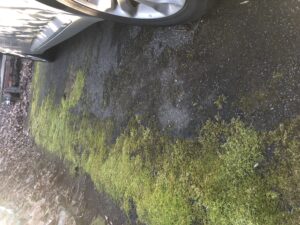
Moss is always growing on this area of my driveway. I use it as a ‘moss nursery’ where I can annually harvest large quantities of moss. This type of ‘sheet moss’ peels up easily in sections.
Harvesting Moss
Harvesting moss is easy. The thicker the moss is the easier it is to harvest. To harvest moss on a flat surface, simply use a flat shovel to scrape the moss off of the surface where it is growing. The moss should come off in strips. If the moss you are harvesting is in a lawn, then simply rake it out of the grass. This moss will be loose. Moss can also be found growing in forests, near streams and anywhere else cool, moist shady conditions prevail.
Installing Moss
Moss that has been harvested with a shovel will usually hold together in flat sections of various sizes. Simply clear the soil in the area to be planted and lay the moss sections much like laying turfgrass sod. Press the moss firmly onto the soil surface assuring good contact. If the moss was harvested by rake from a lawn, simply clear the soil then broadcast the smaller loose moss sections. Again, press the moss down on the ground to assure good contact with soil.
Caring for Moss and Maximizing Growth
Keep moss wet to maximize growth. Mosses thrive in wet, humid shady conditions. It grows on almost any substrate that has nutrients and minerals available for uptake including old concrete and any place soil or organic matter builds up. Moss tends to prefer acidic soils so avoid lime applications to areas where you want moss to thrive.
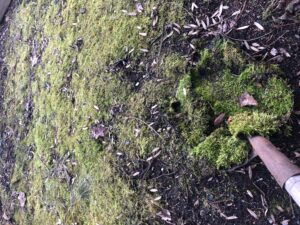
This is a moss garden that i have been working on for several years. The area is in deep shade behind my shop. I needed a ground cover in the area but did not want to do mulch. I opted for a moss lawn and it is looking great. The original moss was harvested from a shady lawn area where moss had moved into the lawn. I used a rake to separate the moss from the turf then broadcast the loose moss over the entire area. Now I have about 100 square feet covered.





